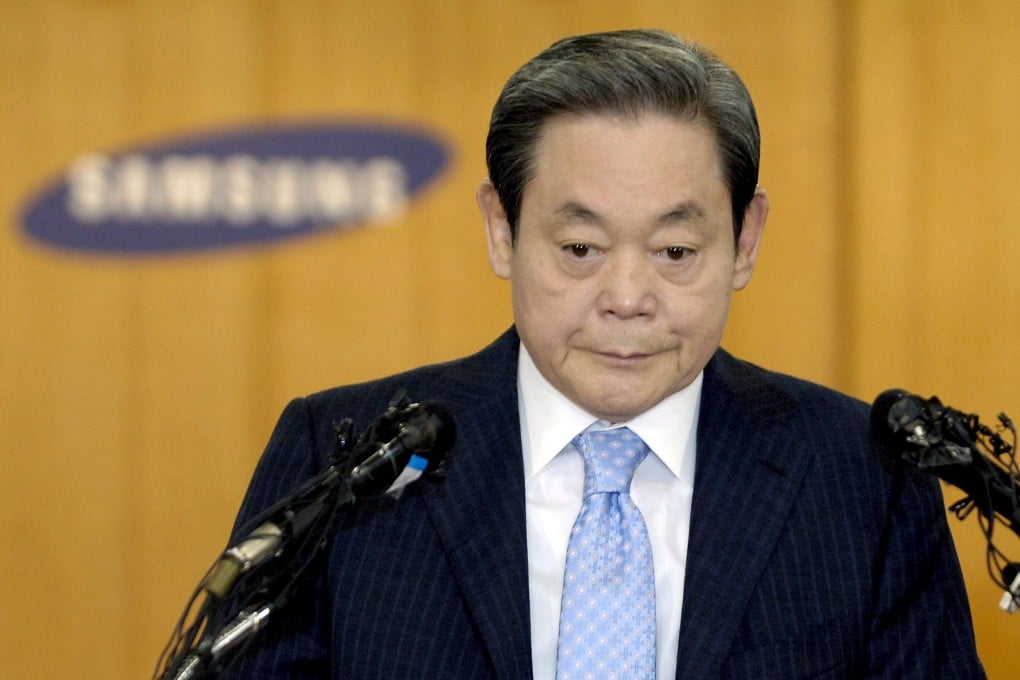In South Korea, chaebol reform calls rekindled after Samsung patriarch Lee Kun-hee’s death
- Family-run South Korean conglomerates like Samsung have a reputation for corruption, unfair business practices and opaque leadership structures
- President Moon Jae-in once described them as ‘deep-rooted evils’ plaguing the country, but an academic said it would be a ‘miracle’ if he can reform them

Euisun Chung, chairman of the country’s largest carmaker, Hyundai Motor Group, told reporters that Lee, who was chairman of group crown jewel Samsung Electronics, had instilled in South Korean industry the desire to “be the best”.
Yet amid the adulation, the Samsung patriarch’s death has focused attention on the darker aspects of his legacy, and with it, rekindled long-standing calls for reform of the family-run conglomerates, or chaebol, that dominate Asia’s fourth-largest economy.
Lee Nak-yon, the chairman of Moon’s governing Democratic Party and a likely future presidential contender, said that while Lee had exemplified business leadership, he had been responsible for “negatives” such as increasing the economy’s heavy reliance on the chaebol and suppressing unions. Jeong Ho-jin, chief spokesperson for the minor left-wing Justice Party, went further, insisting South Korea had to “erase the shadow of the dark history” of cosy relations between business and politics that Lee left behind.